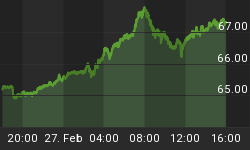Global stock markets have experienced a relatively strong recovery since the middle of March. Although markets in general are still well below previous highs, it makes for interesting reading to reflect on the extent of the correction and subsequent rally, and to review how valuation levels have been impacted.
As illustrated by the table below, the MSCI World Index is still 9.5% down from its high of October 31, 2007 after its 18.1% drop to a low on March 17, 2008 and a subsequent 10.5% improvement.
The MSCI Emerging Market Index fared better by recovering by 15.8% since a 22.2% drop to a low on January 22, 2008, but is still 9.9% down from its previous high.

Within the emerging markets category, the Chinese Shanghai Stock Exchange Composite Index turned out to be the biggest loser with a decline of 49.2% to its low on 18 April 2008. The Index managed to recover by only 15.7% and is still 41.2% down from its previous high. The Hong Kong Hang Seng Index put in a better performance, dropping by 33.4% to its low on March 17, 2008 and recovering by 21.5% since. The Index is therefore still 19.1% lower than its previous high.
The biggest surprises (at least in local currency terms) were the US and the UK stock markets, as these countries' economies were the most affected by the credit crisis.
• The Dow Jones Industrial Index dropped by 17.1% to its low on March 10, 2008, but has already recovered by 9.1% and is now 9.5% down from its previous high.
• The S&P 500 Index declined by 18.6% (a little more than the Dow Jones Industrial Index) to its low on March 10, 2008. The Index has gained 11.0% since hitting bottom and is 9.4% down from its previous high.
• The UK FTSE 100 Index dropped by 19.6% to its low on March 17, 2008, but has recovered 16.6% and is now only 7.0% down from its previous high.
The comparison of returns in local currency terms provides a distorted picture as the declining US dollar has negatively impacted returns for non-US dollar investors. The two tables below show returns in euro and US dollar terms respectively.


Comparing historical returns makes for interesting reading, but becomes more meaningful when read alongside valuation tables. David Fuller (Fullermoney) compiled a very useful table of 96 global stock market indices ranked in ascending order by price-earnings (P/E) multiples and in descending order by dividend yield (DY).
Not surprisingly, P/Es rose somewhat in the last month, in tandem with a number of stock markets moving above their February highs. However, European indices continue to dominate the table when arranged according to P/Es and globally very few markets have moved to new highs following the December/January correction. Most noteworthy were South Africa and Brazil.
Some of the Middle Eastern markets also remain at elevated levels having remained insulated, so far, from the travails of other indices.
"For the most part, this earnings season has not resulted in a swathe of missed estimates and stock market performance has been most responsible for increased multiples," said Fuller.















